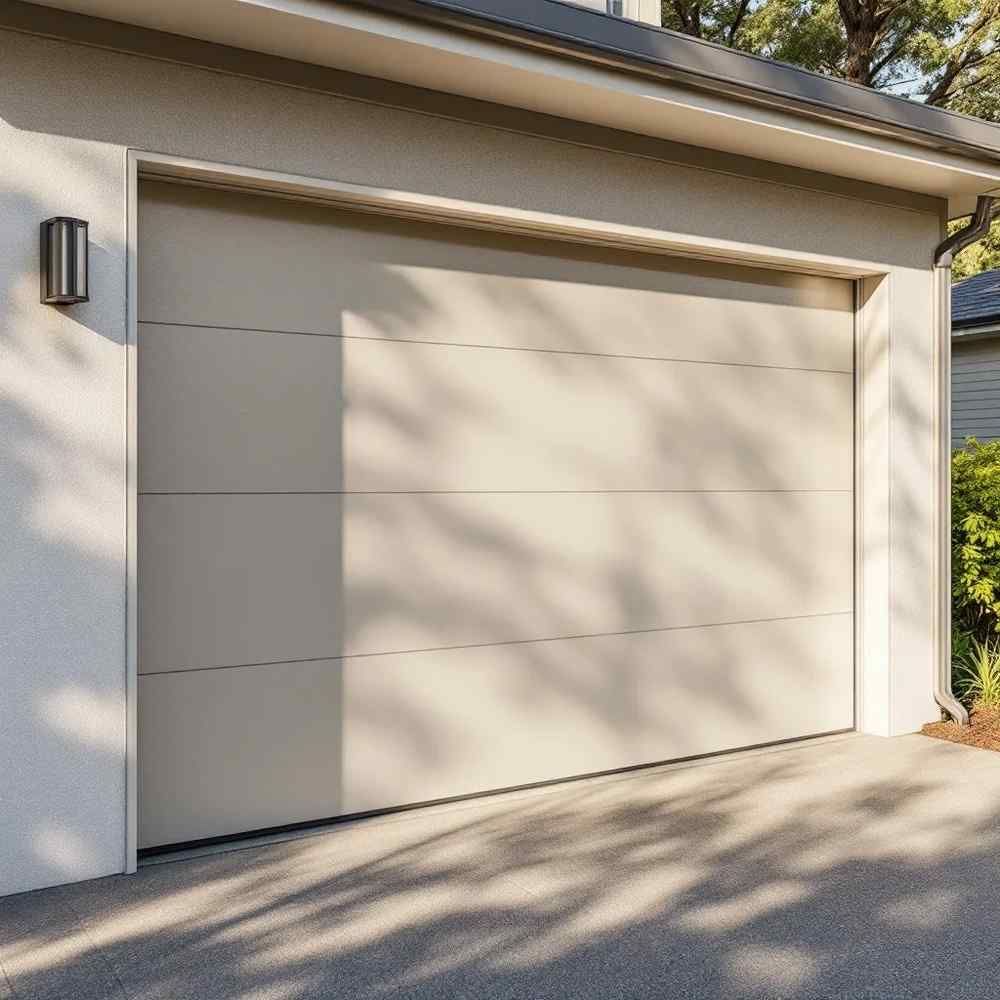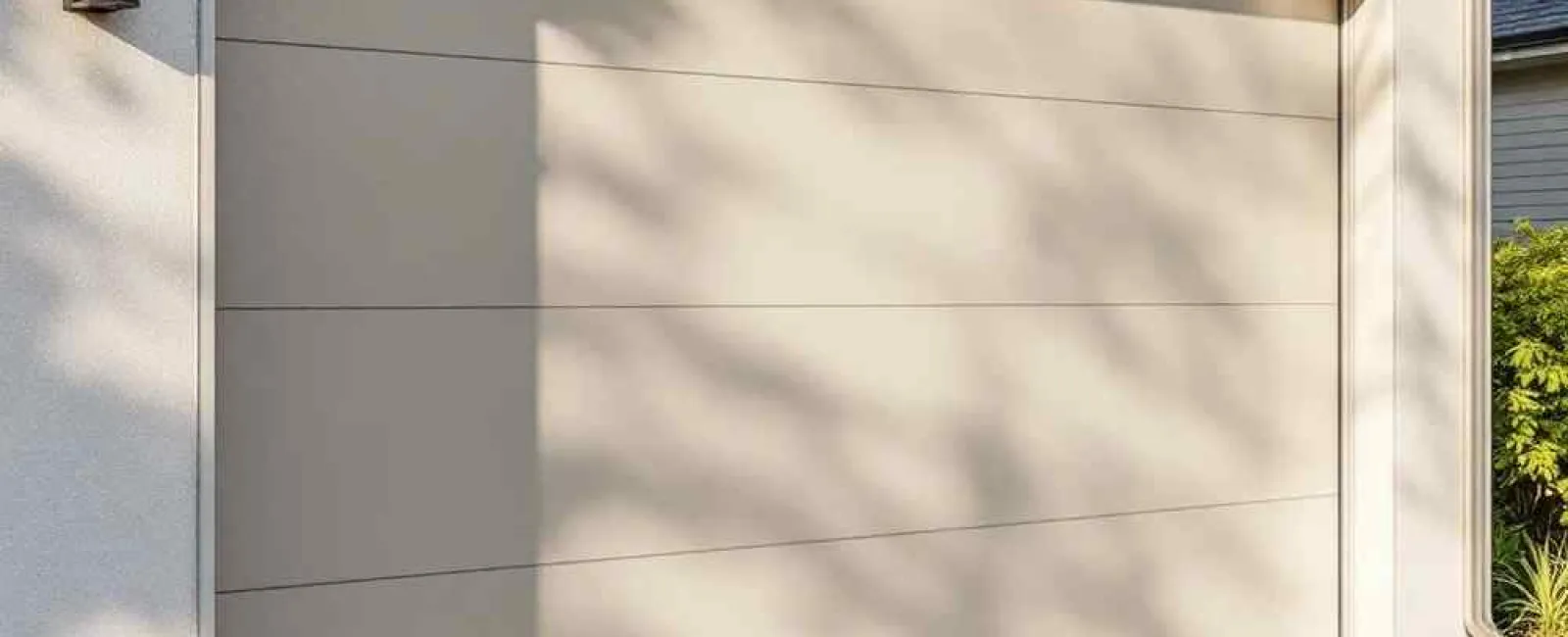- Learn about the importance of R-values and U-factors
- Understand how heat moves into and out of your garage
- Discover how you can get an insulated garage door

Think about opening your front door on a scorching Atlanta summer day and then leaving it open for a few hours. It's probably an unpleasant thought because you know how much energy costs that open door wastes. Leaving a door open is an obvious source of energy waste, yet we don't think about how wasteful a closed garage door can be.
Your garage door is the largest opening in your home and because of that fact, it's a potential source of energy inefficiency. As you heat or cool your home, that air will try to escape your home to the environment outside while the air outside will try to make its way into your home. With an insulated garage door, though, you can stop this airflow and save money on your energy bills.
Is an Insulated Garage Door Right For Your Home?
If you can't tolerate even a single wasted cent in energy spending—and we don't blame you—then insulating your garage door is a logical choice. For others though, there may be other considerations that come to mind when considering if an insulated garage door is right for their house.
- Attached vs. Detached Garage: An attached garage door shares walls and perhaps ceilings with other rooms in your house. This could make heating or cooling those adjacent rooms more expensive without an insulated garage door. A detached garage though, doesn't share these problems and may not need insulation.
- Storage: If you're storing more than just your cars in your garage, you may want to consider insulating the garage door to better protect these items from the elements.
- Comfort: If you're using the garage as an additional room, whether for exercise, office space, hobbies, kids, or pets, then you may want to consider insulation. An insulated garage door can help keep the room at a comfortable temperature for everyone, year round.
Understanding Key Insulation Terms
Once you've determined that insulation is right for your garage door, you'll next want to consider how much insulation you need. You'll also want to consider what type of insulation is best for your garage. When shopping for an insulated garage door, you'll want to consider the door's R-value and U-factor and assess whether the insulation is polystyrene or polyurethane.
- R-Values: When you're assessing insulated garage doors, look for the door's R-value. The higher this number is, the better it is at resisting heat and cold transfers through the material. This is known as its thermal resistance. It is measured based on the thickness of the insulation and the material.
- U-Factor: The U-factor measures how fast heat is lost through a given material and is based on the actual performance of the door. Unlike R-value, a lower number for U-Factor indicates better performance.
- Polystyrene: Polystyrene is a type of foam insulation board that you can typically find in DIY home garage kits. As an aftermarket product, these typically have an R-value less than 6. Some kits with spun ceramic fibers can offer more insulation, but usually at a higher price point.
- Polyurethane: Polyurethane is a spray foam insulation which hardens after being sprayed into the garage door. Their R-Values can vary but are typically around double digits. Its longevity and performance make it one of the best materials for an insulated garage door.
How to Insulate Garage Door
There are two primary ways to insulate garage doors. You can purchase a DIY Kit and attempt to insulate the door yourself, or you can install a new insulated garage door.
DIY Kits
There are numerous DIY kits available online that offer a low-cost method for insulating a garage door. Typically, these kits include the boards or foam batts needed to insulate each panel of your garage door, adhesive, and perhaps gloves and a mask as well. You'll need to measure and cut the boards to your door's specifications and stick the pieces to the wall.
These DIY kits can help avert some energy loss through the garage door and even dampen the noise. However, if you want to reap serious energy savings and keep your garage comfortable, the DIY kit will unfortunately fall short.
Insulated Garage Doors
If you're looking to take a step towards a year-round comfortable garage that can help save you money on your energy bills, an insulated garage door is the better option. Leading brands like Amarr or Clopay offer garage doors already insulated with polyurethane.
These doors essentially have three layers, the exterior, insulation, and interior side of the door all working together to save you money. They can also reduce noise in addition to preserving the temperature of your entire home. Reach out to your local garage door professional for quotes and guidance on installing an energy efficient garage door.
Ask About an Insulated Garage Door Today
North Georgia is no stranger to sweltering summer heat and frosty winter mornings. If you'd prefer to keep those kinds of temperatures outside your home, an insulated garage door is the way to go. With an expertly installed garage door, you can ensure proper performance and reap the energy savings you're after. Contact our professional team today for a free quote on your next garage door.
